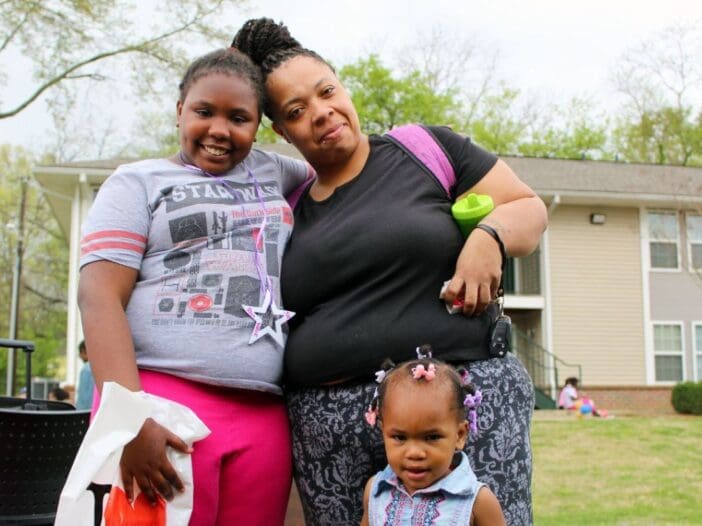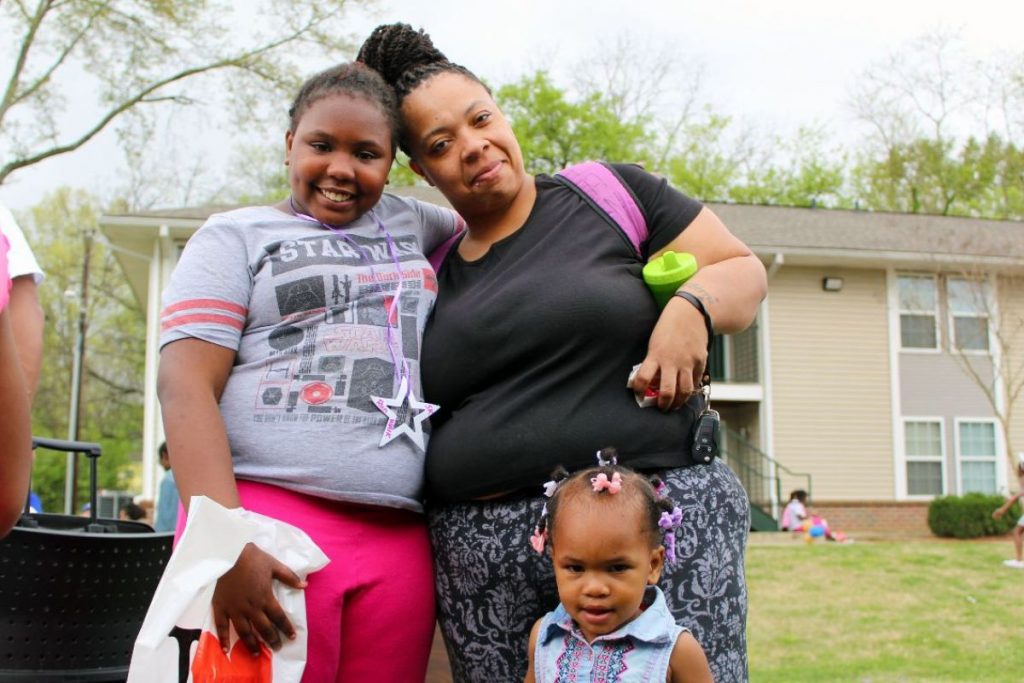

While we love keeping you up-to-date on all things happening at Springboard, we also know many of you are interested in hearing more about The Magnolia Mother’s Trust. It is amazing to think that at this time last year, the idea of providing a basic income to the low-income mothers we work with on a daily basis was just a dream in my mind. Now, six months into the project, we have learned so much.
Our hope was for this project to stand in direct contrast to what is currently offered by our punitive welfare system: offering breathing room instead of an immediate reduction in benefits, including families as co-designers of the project, rather than paternalistically deciding what low-income families need or deserve, and trusting these women to use the resources offered in the best way that they see fit, rather than restricting their choices through vouchers and limitations.
Now halfway through this pilot, we are already so encouraged hearing the stories our moms are telling us. One has finally been able to pursue her GED and work toward her educational goals. Several have paid off students loans and other debts, improving their credit as they work toward larger goals of like home ownership. Others have enrolled in school and training courses as they pursue careers in fields like phlebotomy, medical billing, and social work. And one mom was simply able to take a sick day for the first time in her life without worrying about the repercussions.
But we’re not just collecting stories; we’re also collecting data. We want to know the power providing a basic income to low-income families can have, and we want to back that up with numbers. We are working with an evaluation team to explore four big questions:
- Economic Security–can a basic income, not only alleviate symptoms of poverty, but actually provide a platform for exiting poverty?
- Community Engagement–Will a basic income give families the space and desire to become more actively engaged in their community as leaders and program participants?
- Self-Efficacy–Does a basic income reduce the stigma of public assistance and increase an individual’s desire to work outside the home and set goals for the future?
- Defining Work–Can a basic income help individuals define fulfilling works for themselves, rather than finding a job that simply satisfies work requirements?
While we work to collect this data and answer these questions, we are continuing to invest in the mothers, hosting monthly gatherings on topics of their choice, providing mental health and emotional support as they navigate the questions and transitions that come with a big life change, and connecting the moms to each other and resources in the community as they build a network of support that will continue to uplift them and propel them toward their goals even after this year is over.
We thank you for your belief in us and most importantly for your belief in these incredible 20 mothers who are a part of this.
